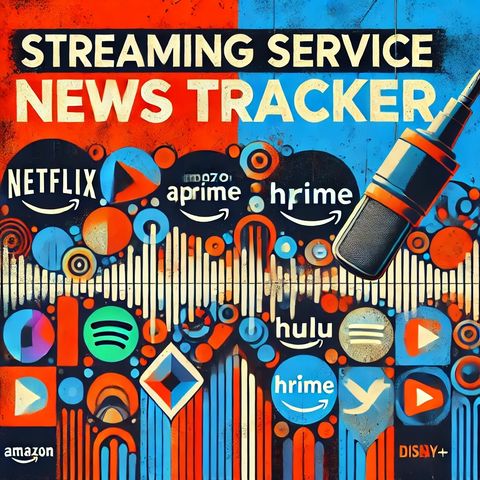18 NOV 2024 · The streaming services industry is experiencing significant growth and transformation. According to recent market research, the global video streaming market size was estimated at USD 106.83 billion in 2023 and is expected to grow at a CAGR of 20.90% from 2024 to 2034, reaching USD 865.85 billion by 2034[1]. This growth is driven by the increasing demand for cloud-based streaming services, particularly in North America, which held a 32% share of the global market in 2023[1].
Key players such as Netflix, Amazon Prime Video, and Disney+ are leading the market, with Netflix and Amazon Prime Video tied for market share in the United States, each holding 22% of the market[4]. However, the industry is also facing challenges, including increased competition and regulatory changes. For instance, Disney reported a loss of USD 2.5 billion for its streaming services in 2023, prompting the company to implement cost-cutting measures such as layoffs and reduced content spending[4].
Emerging competitors are also making their mark in the industry. TikTok and Instagram, for example, have become popular platforms for short-form video content, posing a threat to traditional streaming services[3]. In response, industry leaders are adapting their strategies, with Netflix and Disney+ launching ad-supported tiers to compensate for subscriber and income losses[4].
Consumer behavior is also shifting, with a growing demand for video on demand (VoD) streaming services. According to a Motion Picture Association report, online video subscriptions increased by 14% in 2021, reaching around 1.3 billion new subscriptions[5]. This trend is expected to continue, with the VoD sector projected to hold the largest share of the global OTT revenue during the forecast period[5].
In terms of new product launches, companies are investing in advanced streaming platforms and technologies such as blockchain and artificial intelligence (AI) to improve video quality and enhance user experience[2]. For example, Akamai Technologies, a major player in the market, is offering various software and content delivery platforms to meet the growing demand for streaming services[5].
Regulatory changes are also impacting the industry, with concerns around content piracy and protection hindering market expansion[5]. In response, companies are implementing measures to protect their content and prevent piracy.
Overall, the streaming services industry is experiencing significant growth and transformation, driven by changing consumer behavior, emerging competitors, and technological advancements. Industry leaders are adapting their strategies to respond to these challenges and capitalize on new opportunities.
Recent statistics and data from the past week include:
- The global video streaming market size was estimated at USD 106.83 billion in 2023 and is expected to grow at a CAGR of 20.90% from 2024 to 2034[1].
- Netflix and Amazon Prime Video are tied for market share in the United States, each holding 22% of the market[4].
- Disney reported a loss of USD 2.5 billion for its streaming services in 2023[4].
- Online video subscriptions increased by 14% in 2021, reaching around 1.3 billion new subscriptions[5].
These statistics highlight the dynamic nature of the streaming services industry and the need for companies to adapt to changing market conditions.


